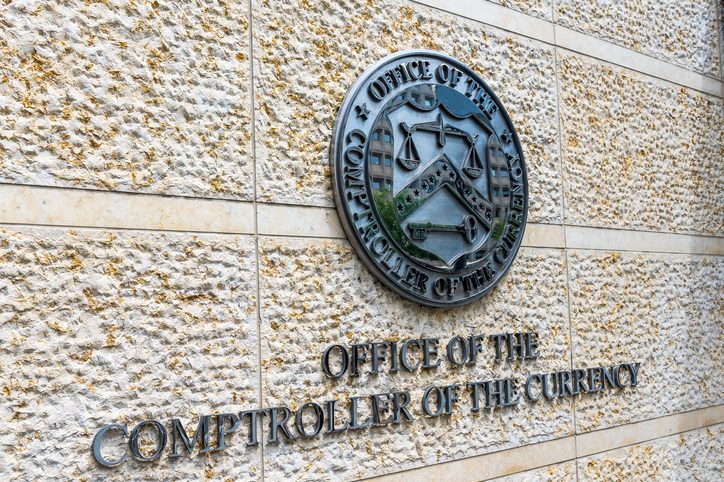The Office of the Comptroller of the Currency (OCC) announced that it will no longer consider reputational risk as one of the factors it scrutinizes during examinations.
Previously, the OCC assessed banks’ reputational risks as material hazards that could hamper efforts to “establish new relationships or services … continue servicing existing relationships … [or] expose an institution to litigation [or] financial loss.”
The OCC justified its decision to strike the reputation category by stating that business decisions, including how a bank might manage its public image, are outside of its regulatory ambit.
But acting Comptroller of the Currency Rodney E Hood also stated that the bank regulator “never used reputation risk as a catch-all justification for supervisory action,” and the move to drop reputational risk was intended to inspire public confidence in its impartiality.
Debanking fears highlighted
Critics of the OCC’s inclusion of reputational risk as a metric for supervisory ratings have argued that regulators could, or did, use it to pressure banks into dropping customers with controversial political views, a tendency otherwise known as “debanking.”
Other critics have simply stated that reputational risks are too vague and unpredictable to make for effective regulatory focal points.
The former views were echoed in a bill introduced earlier this month by Republican lawmakers that sought to limit debanking by ending banking regulators’ “weaponized” ability to use reputational risk as an evaluative criterion.
That bill, FIRMA (Financial Integrity and Regulation Management Act) would “eliminate all references to reputational risk as a measure to determine the safety and soundness of regulated financial institutions.”
The OCC’s decision is in line with a host of recent agency efforts to curtail regulations perceived as having veiled ESG motivations.













